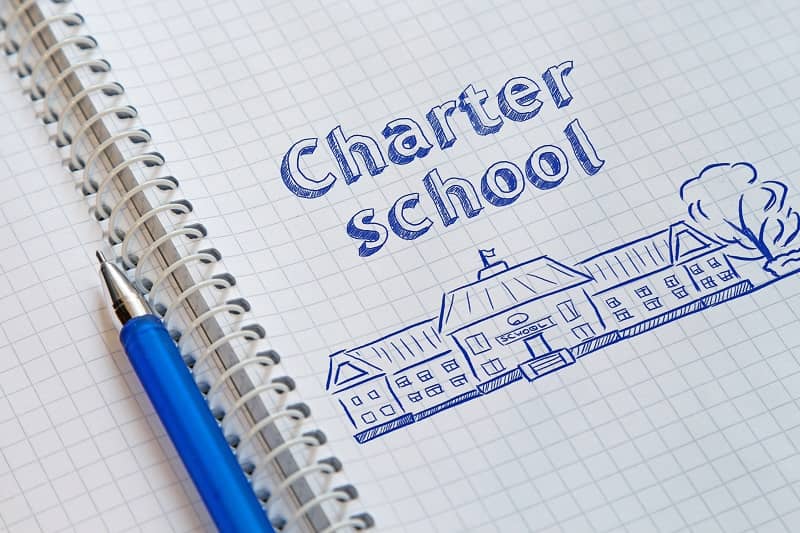
INTRODUCTION
by Steve Buckstein
In 1991, two distinct educational reform paths took off in Oregon. That was the year Cascade Policy Institute was founded, with education as a chief policy priority. It was also the year that the Oregon Legislature passed the “Oregon Education Act for the 21st Century,” known informally as “The Katz Bill” after then-House Speaker Vera Katz.
Cascade’s efforts, often described under the broad category of “school choice,” identified an inflexible system as the main problem facing Oregon’s school children. Thus, we focused on reform ideas that would: 1) give educators greater opportunities to succeed, and 2) give families greater choice in selecting their schools.
The Katz Bill took a different approach, emphasizing accountability in the school system. It focused on setting achievement standards and initiated a battery of tests to gauge student progress. Critics of the state’s reform approached charged that it was painfully slow, mired in bureaucracy and did little more than show just how badly schools were failing to educate students year after year, without actually holding those schools accountable.
Fifteen years later, the Katz Bill’s legacy has grown dim as the State Superintendent of Instruction recently announced plans to abandon the controversial Certificates of Initial and Advanced Mastery that developed out of that 1991 legislative reform effort.
Yet one reform idea from the school choice camp was given a chance with the passage of charter school legislation in 1999, and it continues to show to promise today. The charter school option marries the three reform approaches described above: opportunity for educators, choice for families and accountability for schools.
“A charter school is a public school that receives public funds under a written agreement — a charter — that outlines student performance goals and educational services the public charter school will provide. Charters are excluded from many statutes and rules guiding traditional public schools. In exchange for this freedom from regulation, the public charter school guarantees inits written agreement (charter) certain levels of student performance.”
Now that charter schools have existed in Oregon for about seven years, we believe it’s time to issue a report card on their progress. This report includes both national and state charter school history, a look at the research comparing test scores in charter schools to their regular public school counterparts, two analyses of how successful the charter movement has been in Oregon, and recommendations for improvement.
Cascade helped launch Oregon’s charter school debate in 1993, while the national charter school movement was still in its infancy. We brought one of the few national charter school experts, Ted Kolderie, from Minnesota to meet with key Oregon education and business leaders to talk about adopting a harter school program in our state.
By 1999 the groundwork was laid for successful legislation authorizing Oregon charter schools. Cascade’s Charter Policy Handbook was a key resource in that effort. The Handbook was written by the Oregon Charter School Task Force, anindependent group composed of “friends of the charter movement” and chaired by Richard Meinhard. It was hand-delivered to all 90 Oregon legislators who would soon vote on our state’s charter law.
The Handbook suggested that the most promising way to motivate the public school system to create needed innovation and promising educational practices was through the use of public charter schools. It set out four principles for theframework of a charter school system in Oregon, which were:
1. Autonomy — Charter schools must be separate andindependent from local school district control.
2. Multiple sponsors — Other public bodies besides the localschool board should be able to charter schools.
3. Accountability in exchange for deregulation — Charter schools must be accountable both to families and to the public in return for being released from many of the regulations that restrict regular public schools.
4. Public schools of choice — Charter schools must be open to allstudents, tuition free, secular, and under public oversight.
The 1999 Oregon legislature passed, and the Governor signed, a charter law that, depending on who is asked, went a little or a long way toward adopting the philosophy and principles set out in theOregon Charter Policy Handbook.
About Cascade Policy Institute: Founded in 1991, Cascade Policy Institute is Oregon’s premier policy research center. Cascade’s mission is to explore and promote public policy alternatives that foster individual liberty, personal responsibility and economic opportunity. To that end, the Institute publishes policy studies, provides public speakers, organizes community forums and sponsors educational programs. Cascade Policy Institute is a tax-exempt educational organization as defined under IRS code 501(c)(3). Cascade neither solicits nor accepts government funding, and is supported by individual, foundation and business contributions. Nothing appearing in this document is to be construed as necessarily representing the views of Cascade or its donors, or as an attempt to aid or hinder the passage of any bill before any legislative body. The views expressed herein are the author’s own. Copyright 2005 by Cascade Policy Institute. All rights reserved.












Greg Garrelts
I work for McKenzie Chapter school and its administrators are absolutely corrupt. They fight all efforts to get clear information as far as benefits and pay. It’s an absolute joke. No one is held accountable for their actions. We give big raises to people that have family connections. It use to be a decent school before Lane Tompkins and Elaine Bryson. I believe the school will be partially closed due to parents using other options.